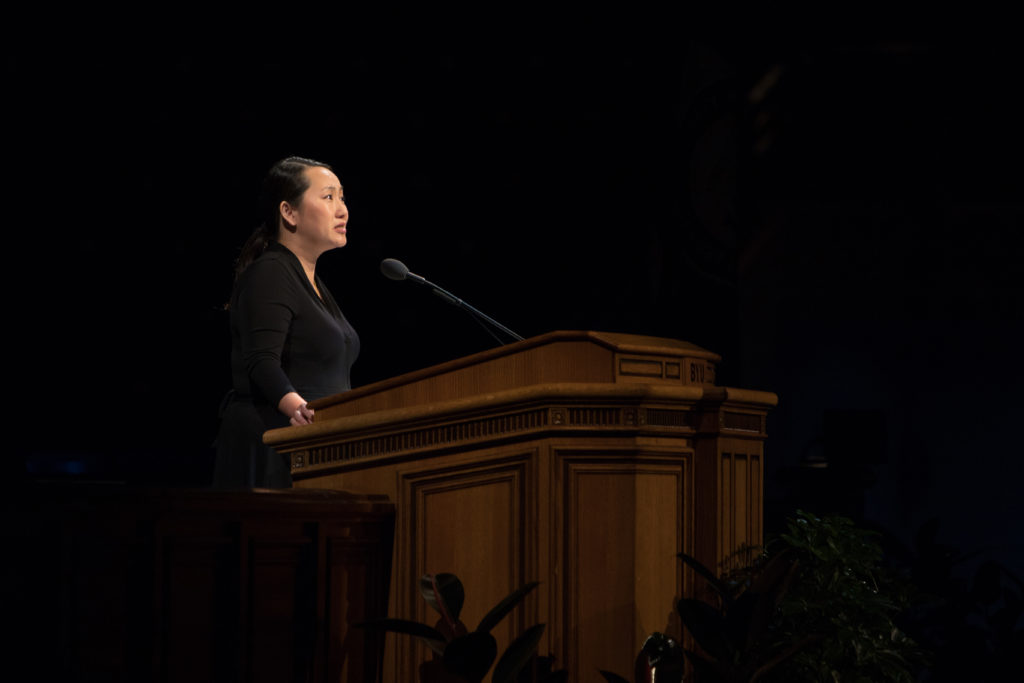
Hmong author, teacher and activist Kao Kalia Yang spoke at a BYU forum Tuesday, Sept. 24, in the Marriott Center. Her remarks were titled, “When You Are the Impossible Happening.” This is the first in a series of forums centered around the theme “in pursuit of democratic character” planned for 2019-20.
During her speech, Yang not only told the story of her people but also of her own journey immigrating to America and receiving an education.
Yang was born at the Ban Vinai Refugee Camp in Thailand — a camp, she said, where people were only fed three days a week and where suicide was the leading cause of death. Yang was taught that she looked down at her parents from the clouds as an unborn child and decided that, amidst the persecution the Hmong faced, she would begin her journey on Earth.
Part of that journey was to obtain an education, she said. Yang recalled being tested with other refugee children around the time she was in first grade. One woman asked her to recite her ABCs. Not understanding what the woman wanted, Yang replied, “A, B and C.”
The woman again said, “Say your ABCs.”
Once again, Yang replied, “A, B and C.”
Yang said that when she started school in America, she struggled. She talked about how difficult it was for her to learn English. Instead, she cultivated a talent for writing.
Throughout school, her grandmother, who had no education and could neither read nor write, offered her words of encouragement.
“She said that education was the garden that I cultivated in America and that one day we would make the harvest together,” Yang said. Unfortunately, Yang’s grandmother passed away and was unable to see her finish high school.
“Life continued as if she had never lived. And I remember taking out that first piece of paper, telling my heart that I was going to write everything that I would never forget about my grandmother on that piece of paper,” Yang said.
Thirty-seven pages later, her father walked in on her and asked what she was doing.
“I’m writing my final love letter to my grandma,” she said.
Moments from her childhood and the letters she wrote to her grandmother were the memories and stories that Yang later continued to preserve through writing — a talent she said she cultivated when it was too difficult for her to speak. She has since written books dedicated to the words of her grandmother and books that contain words from her father, who was a songwriter and poet.
“The dream never dies. It always only grows bigger,” Yang recalled her father saying.
From the pages of memories, Yang has been able to cultivate her love of writing to not only share her life but to also give voice to other Hmong people through the books she has published, including “The Song Poet” — a memoir of her father — and “The Latehomecomer” — a memoir dedicated to her late grandmother.
“Hmong is a people, not a country. They say thank you for telling our stories,” Yang said. “That’s what we’re here to do — to share our stories not only of a people but of a young girl who rises up, … who understands that from the moment of her birth, the impossible happens every single day.”




